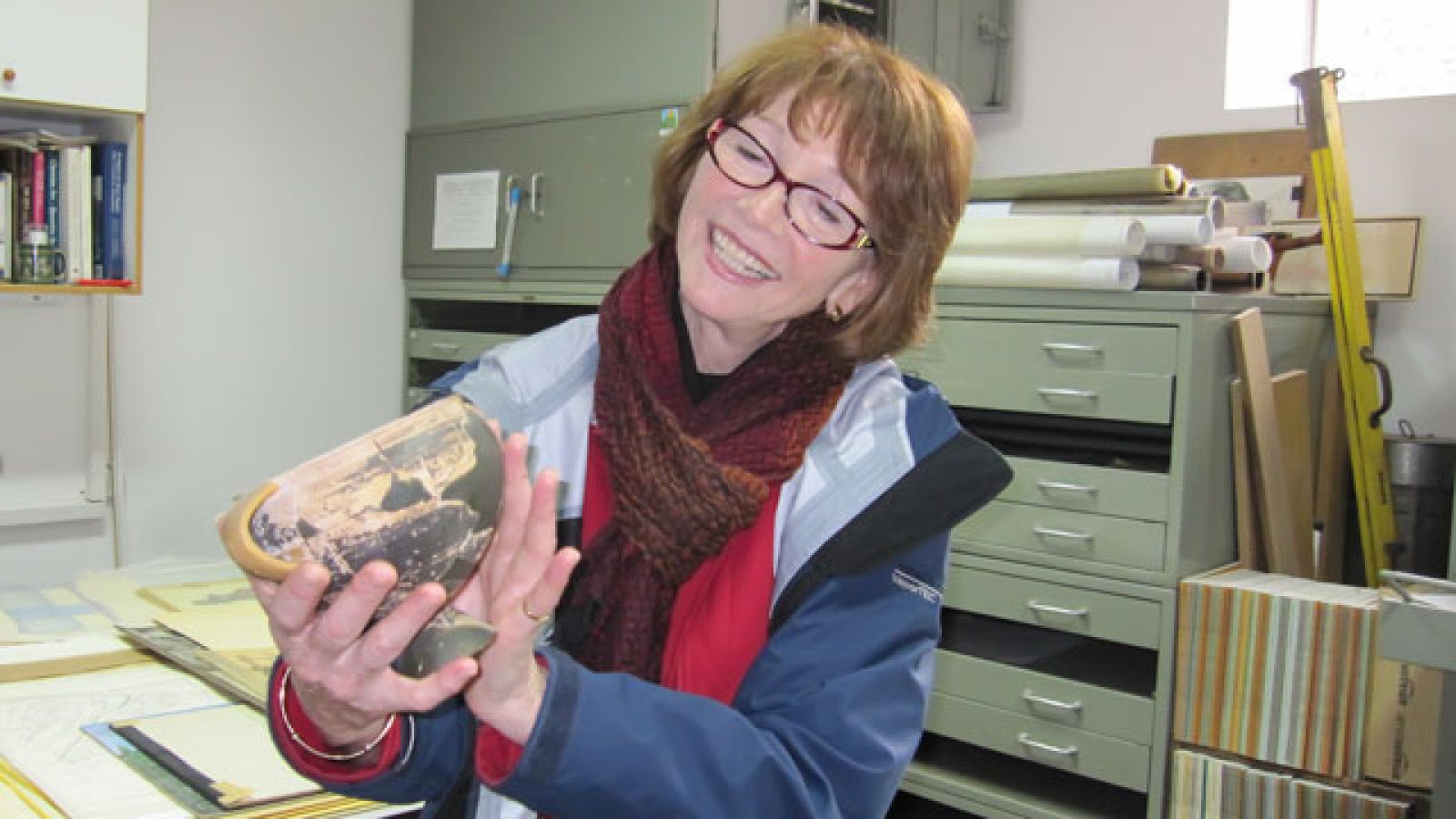Homer guides a Classics scholar to Emeritus honour

Elizabeth Minchin, here assessing an ancient vase, will have her name inscribed on the Roll of Professors Emeriti of the University.
An ANU academic who fell head over heels for Homer while an undergraduate and carved a career as a Latin and Ancient Greek specialist is to have her name inscribed on the Roll of Professors Emeriti of the University.
Elizabeth Minchin, from the School Literature, Languages and Linguistics’ Centre for Classical Studies, says she is very conscious of the honour of emeritus status.
The citation says she has worked at the ANU in Classics since 1973 and obtained her PhD from the university in 1990.
“Over this time, she has had a distinguished career in all areas of research, teaching and service, with her work driven by a desire to help others appreciate why the literature of these ancient cultures continues to be so influential,” it said.
Elizabeth recalls: “As an undergraduate, I took a course in Ancient Greek, in which we read large chunks of Homer’s Iliad--and I knew then that I had to spend more time with this text.
“This poem is over 2500 years old; yet the poet is so insightful about human relationships. And this is only one of the many absorbing aspects of these epics.”
The citation also says Professor Minchin has “made a significant contribution in raising the profile of Classics in the Australian setting.
“She has been responsible for building and leading Classics at ANU, and has helped the formation of a very successful Centre”.
The Centre for Classical Studies was formally recognised in March this year.
The ANU Classics Museum, which features a scale model of ancient Rome and numerous antiquities from the ancient Mediterranean world, is a vital part of teaching classics.
“When students come to their ancient history tutorial, or an Advanced Greek class, they have to walk through the museum and that, as it were, provides a kind of context, gets them into the zone in which they need to be,” Elizabeth says.
“But the museum does more than that: it is an important resource in our teaching about these ancient cultures.”
Elizabeth says she enjoys the experience of teaching.
“I love teaching the ancient languages to beginners – and this is a particular interest of mine – and teaching them how to learn a language,” she says.
“Once students have advanced in their language study, we introduce them to real texts.”
This is challenging for students because unlike French, for example, no “baby texts” exist in ancient Greek or Latin.
“Sitting around and talking about a text, reading it slowly, is one of the most civilized activities there is, and I really enjoy that, and I enjoy being with students who enjoy it, too.”
Elizabeth’s current research strands include the connections between landscape and memory in the Hellespont region, an area encompassing both the Gallipoli peninsula and Troy--and why the notion of Troy remains influential even in our own world.
“I enjoy the company of my colleagues and the company of our students, who are a really lively, intelligent bunch.
“I’d be sorry not still to be part of this world.”